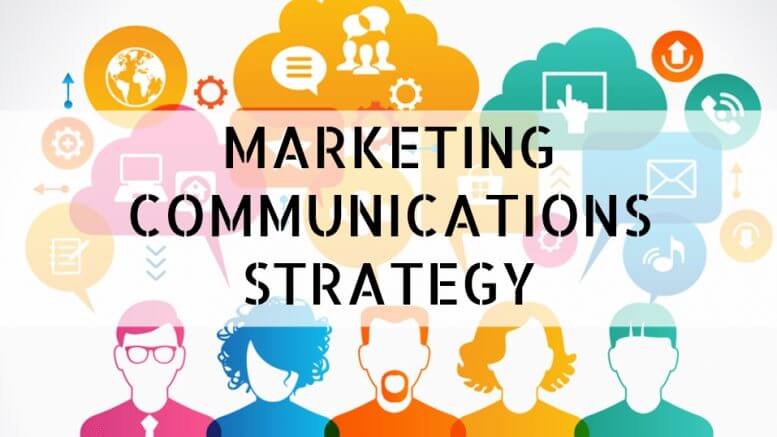When expanding to France, you need to consider a few things if you want your business to succeed. It's not just about capital and enthusiasm when it comes to doing business, but you have to know this new economic, cultural and social context in the palm of your hand. France is one of the countries with the highest GDP and HDI (Human Development Index) in the world. It is a leading, innovative and growing country with a highly educated population and one of Europe's most vibrant start-ups.
France has the third largest economy in Europe, after the United Kingdom and Germany. Following the election of President Emmanuel Macron in 2017, the French economy underwent what the Wall Street Journal has labeled a pro-business overhaul, redefining the role of the State in the economy. and replace the role of passive stakeholders with the active promotion of the private sector, with initiatives such as innovation funds. In this post, we will talk about some key points that you need to keep in mind when planning to expand your business to France:
Top 05 Things To Know If You Want To Do Business In France.
1. Establishing a Business
A liaison office is a representative office that has no separate legal entity from the company it represents and cannot engage in direct commercial activity. This office may conduct partnerships, advertising and other activities, but business must be conducted with the company, not the liaison.
When there is a legal entity, the branch office is not separate from the parent company. Subsidiaries, on the other hand, are separate legal entities with their assets separate from the parent company and capable of receiving management fees and commissions from the parent company. Smaller businesses can do just fine with the help of sales agents. Sales agents act as a connection between a company (or collection of companies) and the French market.
Note: Customs document translation
2. Human Resources
- Labor law allows businesses to operate to develop, a sensitive approach to labor.
- Highly trained human resources: 44% of 25 to 34 year olds have university degrees. 30,5% in Germany and 25,6% in Italy. (OECD, Education at a Glance, 2017)
- Leader in international academics, with three of the top 6 most prestigious institutions, having conducted Master's studies in France.
3. Tax Policy
Tax policy in France is quite complicated. So get professional financial advice. You need to know the three main types of taxes are CIT, PIT and VAT.
VAT tax (value added tax) is applicable throughout the European Union, in accordance with directive 2006-112-EC. VAT is paid by consumers and is added to the price of taxable goods. As reported by PwC, “The standard French VAT rate on sales of goods and services is 19,6% (increased to 21,2% starting October 1, 10). Rate reductions are applied on food and certain agricultural products (2012%), books, public transport, newspapers and magazines (5,5%).”
Corporate income tax in France does not apply to income of permanent establishments abroad, but to income generated within French territory. Dividends from parent companies are subject to CIT, as are capital gains. As of January 1, the CIT rate starts at 2010%, with rates going up to > 28% for million euro companies.
Personal Income Tax is a personal income tax at the rate of 0% to 45%, plus 3% income tax on income in excess of 250 euros for one person (or 500 thousand euros for a couple) and 4% tax income for income in excess of 500 thousand euros for a person, (or 1 million euros for a couple).
Note: Translating financial and accounting documents
Tax incentives are available to companies of all sizes that have donated to local charities, invested in renewable energy and sustainable production methods, or invested in technology and research. . According to Business France, “the French tax system actively encourages [research and development] through the French research tax credit. The number of private sector researchers grew by 30% between 2007 and 2014, when 37.000 high value-added jobs were created.”
4. Marketing & Communication
If you want to expand to France, do it digitally. With a 90% penetration rate on the internet, customers are used to making purchases online. In fact, there are more than 120 electronic stores operating in France to date and that does not mean that there is no room left to enter. According to Statista, revenue in the e-commerce sector is expected to experience 8,0% annual growth over the next four years.
Although the market is promising, the challenges are also many. Do you have what it takes to expand your online sales experience into this market? French consumers are known to be sensitive to language. So you need to demonstrate a grammatically sound communication strategy and can't be without the help of a professional localization company. As a result, you can tailor the language, format, pricing, and design on your platform.
Note: Translation Marketing – Advertising – Communication
After you satisfy the product, the ad also needs to be localized. Because when your website describes the message in perfect French, your customers won't shop if they can't find it. So how can you make them see it?
Initially, most of your website traffic will come through paid advertising. The good thing about digital advertising is that it is very targeted and you can spend as much or as little as you want in it. So translating the right copy of your ad, choosing the right keywords through international market research, and tweaking your display ad design are imperative to becoming the number one spot in the engine results. Looking for French customers.
For a standalone paid advertising strategy, you should always invest your time and effort into rankings. This means that your website must be properly optimized to appear on search engines without spending money on them. That takes thorough market research, keyword analysis, on-page optimization, multilingual link building, and a solid content strategy to ensure search engines position you as high as possible. good for your target keywords.
Don't underestimate the power of social media. According to a 2018 study, 94% of French in the 18-24 age group use social media. The number drops to 82% in the 25-39 age gap. This means that France is one of the markets with the highest social media penetration, so a solid multilingual strategy for these channels is imperative.
At Idichthuat, we handle everything related to translation, notarization or Consular authentication. Personal profiles, company profile or even translate video clip subtitles professional – quick to introduce your company to international friends.
Note: Bid Documents Translation Services – Notarized Bidding Documents
5. Some Information You Need to Note When Doing Business in France
- “Business France is a public organization that, under the auspices of the Ministry of Economy and Finance, the Ministry of Europe and Foreign Affairs, and the Commission for Territorial Equality, is present in France and 70 countries around the world to promoting the attractiveness of France, its businesses and territories.”
- “Statista has some great data on French internet usage and social media.”
- If you are based in the US, Export.gov can be a great resource nguồn
You are viewing the article A Guide To Doing Business In France of Idichthuat. Hope this article will bring you a lot of useful knowledge. If you have a need French translation Please contact us for the best support.
Contact us today for the fastest service quote and consultation.
| ✔️ See more related information: | 👉 Reliable, Cheap, Professional Swedish Translation Chuyên |
| 👉 The Most Professional Electronic Translation | |
| 👉 Quick Translation of Seafood Documents | |

Nguyen Trung Khang - Talented interpreter and translator, passionate about translation
Nguyen Trung Khang is a talented interpreter and translator, with many years of experience in the field of translation and linguistics. He graduated from Ho Chi Minh City University of Education, majoring in Linguistics in 2015.
After graduating, Mr. Khang participated in a professional interpretation and interpretation training course at the University of Foreign Languages - Hanoi National University. He achieved a high-level certificate in interpreting and interpreting, and was also awarded a master's degree in linguistics.



